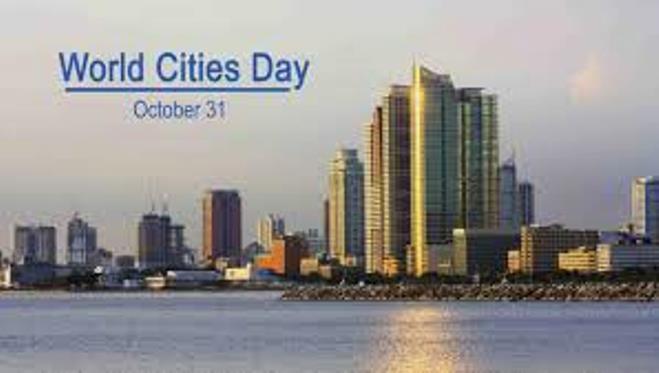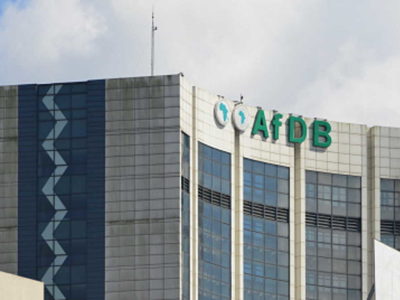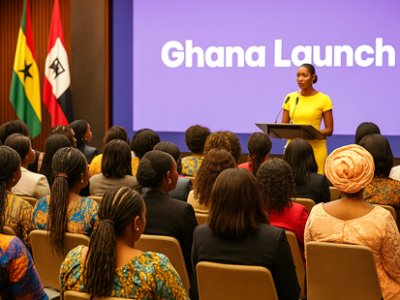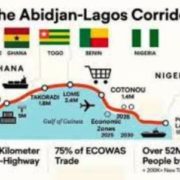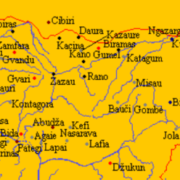Observed annually on 31 October, World Cities Day spotlights the transformative potential of people-centred smart cities in shaping equitable, prosperous, sustainable, and inclusive urban environments. This year’s theme underscores the imperative to design cities that enhance the quality of life and foster resilience for all communities.
In Africa, climate change intensifies the urgency of inclusive urban development. Without adequate response measures, an estimated 118 million people living in extreme poverty could face heightened exposure to drought, flooding, and extreme heat by 2030. These climate-driven events threaten to damage infrastructure, disrupt economies, and compromise public health – causing physical harm and mental distress – as well as reduced access to essential commodities through disrupted supply chains and resource production.
Climate adaptation in Africa, therefore, means creating cities that resist and regenerate without reinforcing the social and economic inequities baked into many of Africa’s urban environments through the continent’s colonial history. Most of these inequities persist unintentionally. Poorer areas in cities across the world are generally less well provided with services and amenities, have poorer air quality, and less access to green space — factors with a range of knock-on effects for health and educational outcomes. Deprivation correlates with low life expectancy and poor life chances overall.
Africa’s urbanisation agenda presents a significant opportunity
Research suggests that nearly half of Africa’s population (over 700 million people) already live in urban areas, and this number is expected to double (to 1.4 billion) by 2050 as Africa sets an unprecedented record pace of urban expansion. To meet growing demand, the temptation to build new cities on greenfield sites, away from existing city centres, is enormous. Yet, while rapid urban growth demands expanded urban space, overlooking the critical importance of retrofitting existing urban infrastructure risks undermining climate resilience and deepening the social inequalities that many African nations are working hard to address.
“Retrofitting serves a dual purpose,” explains Alison Groves, Director of Built Ecology at WSP in Africa. “It not only enhances the energy efficiency of existing buildings and integrates sustainable practices like water conservation, but it also revitalises underutilised or redundant structures – such as converting outdated office blocks into housing. The opportunity to retrofit urban infrastructure to be smarter, more sustainable, and more inclusive is key to advancing climate resilience and social equity across Africa.”
By leveraging existing building stock to densify urban areas, cities can deliver affordable housing in proximity to established infrastructure, services, workplaces, and amenities – accommodating more people in safer, more sustainable environments.
Groves adds: “It’s about meeting the challenge of growing people-centred smart cities without reinforcing existing social and economic divides, while ensuring environmental sustainability. We must consider our cities through the lens of the lived experience – focusing on everything from environmental quality and walkability to connectivity, amenities, and local economic opportunity.”
Driving the imperative from inclusivity to prosperity
Transport infrastructure and planning are key enablers of trade and drivers of economic growth, making them critical considerations for ensuring African cities are not only resilient and inclusive, but built to thrive. These networks represent invaluable assets, not merely in terms of monetary worth but in the significant socioeconomic benefits they bring. The ability to move people, goods, and services seamlessly lies at the heart of modern life, connecting participants within the economy – businesses and individuals – and fostering progress.
“The impact of efficient and well-thought-out transport networks extends far beyond functionality, influencing societal transformation and environmental outcomes,” says John Rammutla, Technical Director (Discipline Lead – Transportation and Aviation), WSP. “Through thoughtful planning and collaboration, transport systems can become catalysts for improved quality of life and community development.”
In addition to more effective collaboration, leveraging Intelligent Transportation Systems (ITS) to digitalise transportation networks will further economic growth through efficiency and safety. ITS, then, constitutes an important part of the future African smart city as it integrates innovative information and communication technologies into transportation and traffic management to enhance safety, efficiency, and sustainability, while reducing congestion and enriching the driving experience.
Rammutla adds: “In the context of people-centred cities, we also see reduced commuting as a positive contributor to lowering carbon footprints and designing resilient, inclusive cities. Our teams embed social, physical, and digital connectivity to broaden horizons whilst boosting mobility, health, and equity.”
Supercharging Africa’s energy transition
Africa faces a dual transition. Around 600 million people still lack reliable access to electricity, accounting for more than 80% of the global electricity access gap. At the same time, there is a strong push towards decarbonising Africa’s energy sectors.
“Access to secure, affordable energy is critical to create quality jobs, protect livelihoods, boost security to bring durable peace, and promote economic growth. And it must be provided sustainably,” says Zayd Vawda, Principal Associate: Renewable Energy, WSP in Africa.
According to the Africa Energy Report 2025, Africa’s total power generation stands at over 980 terawatt hours (TWh), and fossil fuels account for nearly 72%, while renewables hold a share of just over 27%. However, this reliance on fossil fuels is shifting, and rapidly. In 2023, the money raised by African climate tech startups accounted for more than 30% of all funds raised by startups on the continent, placing climate tech second only to fintech.
“Equal access to reliable energy is crucial for designing resilient, inclusive African cities. And energy transition isn’t just a challenge – it’s a technological and socioeconomic opportunity,” Vawda. “We’re helping clients move faster and think smarter by aligning policy, capital, and innovation. Our advisory teams turn ambition into action and vision into value, supercharging progress toward lower-carbon energy systems.”
Reshaping resilience through water resource management for future prosperity
Water considerations, too, must be integrated from the outset for smart, people-centred African cities, especially in water-scarce countries. Where the prevailing aging infrastructure in many African countries not only impacts reliable access to water, but water quality as well, and the expected largest wave of unprecedented urban growth in Africa in the coming decades will exacerbate this.
Priya Moodley, Technical Director: Water Resources, WSP in Africa, says: “If African cities are to respond to this expected growth, and without exacerbating existing social and economic inequalities, physical infrastructure as well as protection and preservation practices must be adapted to meet people’s needs, sustainably.”
Moodley believes that all stakeholders in the value chain, from suppliers to regulators, must recognise the urgency of this challenge, understand where the greatest risks and opportunities can be found across the lifecycle, and work to develop and implement appropriate water strategies. “To optimise resources, water management principles must guide the prioritisation of measures, starting by preventing unnecessary uses or losses of drinkable water, and promoting appropriate disposal of water that cannot be reused without endangering human health or harming the environment.”
Designing Africa’s future cities, today
In Africa, urbanisation trends represent an opportunity to retrofit and upgrade city infrastructure with resilience and inclusivity in mind. Collaborating with clients and communities, WSP’s teams strive to create healthy, resilient, prosperous places, equipped to flourish for generations to come.
“We know that the conditions in which we are born, grow, live, work, and age are critical to human wellbeing, and we are passionate about creating the strongest possible foundations. We take a holistic approach to planning and delivering projects for communities that are equitable, in balance with nature and future-ready, while always taking care to preserve what makes each one a unique place,” concludes Groves.
WSP in Africa is hiring! To find out more about available opportunities, check out the Careers page on our website or look out for updates on our LinkedIn page, @WSPinAfrica.

